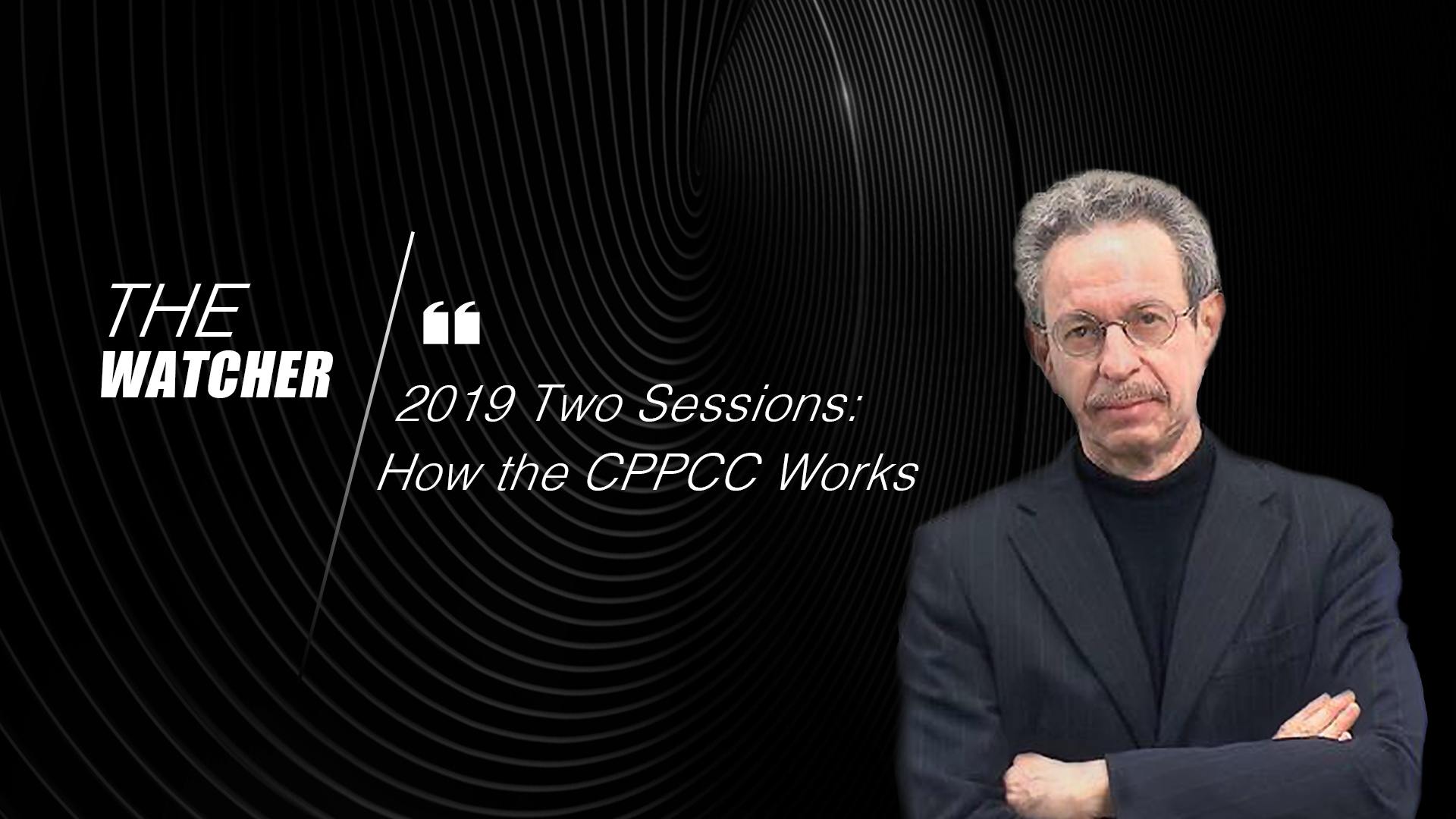
Opinion
09:14, 04-Mar-2019
2019 Two Sessions: How the CPPCC works
Robert Lawrence Kuhn
03:58

I'm Robert Lawrence Kuhn and here's what I'm watching: The Chinese People's Political Consultative Conference, the CPPCC, China's highest-level advisory body, opening its annual session on March 3.
The CPPCC is a special feature of the Chinese political system and it is usually under-appreciated in the West, and sometimes even in China. Because it has no legislative power and can only “consult” or “advise,” the CPPCC may seem powerless. But that is not so.
Increasingly, with the internet and mobile providing the public with social media distribution and influence, the CPPCC has substantial real power to shape public opinion and to leverage public social media.
Thus, as the CPPCC develops top-level professional advice, it can transform expert opinion into actionable proposals. CPPCC members are leaders in their fields, and when they offer advice, officials had better pay attention and take it seriously. Woe unto those who do not!
Officials are sandwiched, as it were, between China's leaders above and the public below, both of whom are watching to see how officials respond to CPPCC advice. The CPPCC functions in a way broadly similar to how lobbyist work in the U.S., with a major difference being that whereas American lobbyists are paid advocates, CPPCC members are leading representatives of their sectors.
For example, there may be 80 or 90 healthcare CPPCC members, most of whom are among China's leading doctors and medical administrators. They are empowered to conduct research and to file reports.
Those reports are evaluated by higher levels of the CPPCC and those reports deemed worthy, which are the large majority, are sent as official CPPCC communications to the heads of the relevant bodies or authorities.
In instructing CPPCC members how to conduct their advisory functions, CPPCC Chairman Wang Yang exhorted them to take part in politics and self-education. Giving advice is an art as well as a science, he said.
To give advice, one must first be a student; only then can one be a teacher. He described the relationship between student and teacher as “dialectical” — a Marxist term for using opposing forces to find optimum solutions — and he called for cultivating “an attitude toward China's kind of deliberative democracy”.
He stressed learning from practice. If you want to know the taste of pears, you must first taste pears, and learning from the masses because “the grassroots are always the best nutrients for effective research.”
The effectiveness of advice, Wang Yang concluded, depends on five characteristics: Rational participation. Resilience. Innovative deliberation. Constructive speech. Asking for what is right. Where will the CPPCC focus this year? I'm keeping watch. I'm Robert Lawrence Kuhn.
(If you want to contribute and have specific expertise, please contact us at opinions@cgtn.com)

SITEMAP
Copyright © 2018 CGTN. Beijing ICP prepared NO.16065310-3
Copyright © 2018 CGTN. Beijing ICP prepared NO.16065310-3